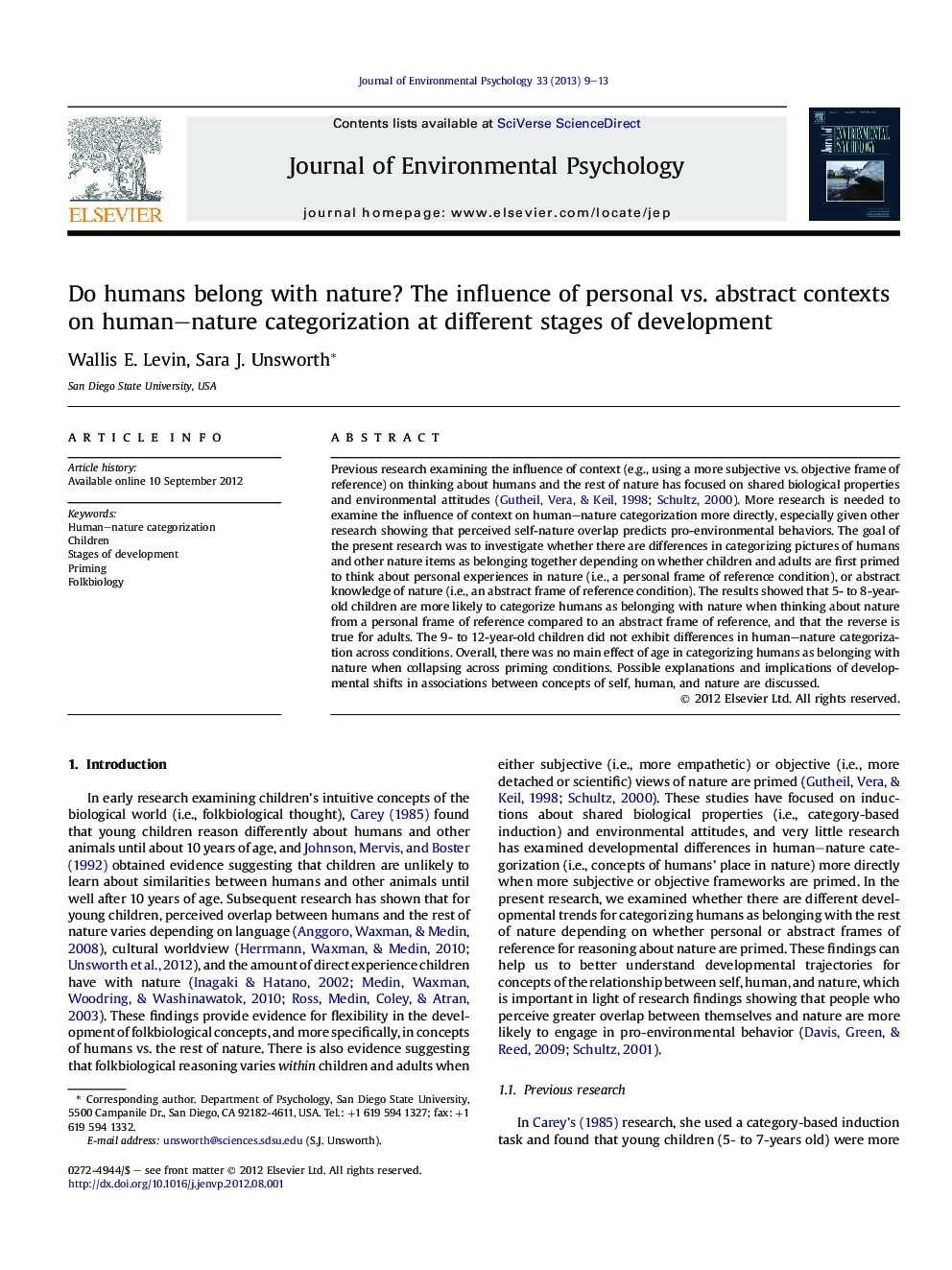| Article ID | Journal | Published Year | Pages | File Type |
|---|---|---|---|---|
| 885697 | Journal of Environmental Psychology | 2013 | 5 Pages |
Previous research examining the influence of context (e.g., using a more subjective vs. objective frame of reference) on thinking about humans and the rest of nature has focused on shared biological properties and environmental attitudes (Gutheil, Vera, & Keil, 1998; Schultz, 2000). More research is needed to examine the influence of context on human–nature categorization more directly, especially given other research showing that perceived self-nature overlap predicts pro-environmental behaviors. The goal of the present research was to investigate whether there are differences in categorizing pictures of humans and other nature items as belonging together depending on whether children and adults are first primed to think about personal experiences in nature (i.e., a personal frame of reference condition), or abstract knowledge of nature (i.e., an abstract frame of reference condition). The results showed that 5- to 8-year-old children are more likely to categorize humans as belonging with nature when thinking about nature from a personal frame of reference compared to an abstract frame of reference, and that the reverse is true for adults. The 9- to 12-year-old children did not exhibit differences in human–nature categorization across conditions. Overall, there was no main effect of age in categorizing humans as belonging with nature when collapsing across priming conditions. Possible explanations and implications of developmental shifts in associations between concepts of self, human, and nature are discussed.
► Priming personal vs. abstract nature concepts influences human–nature categories. ► There are developmental differences in human–nature categorization. ► Developmental trends differ depending on personal vs. abstract priming contexts.
